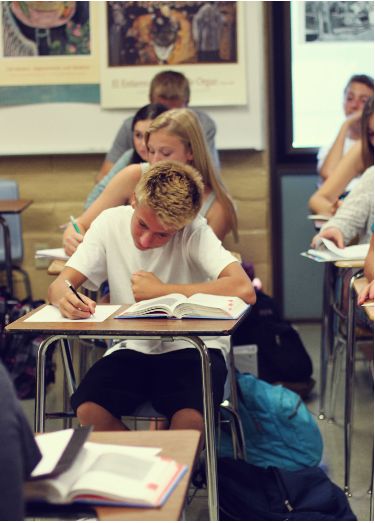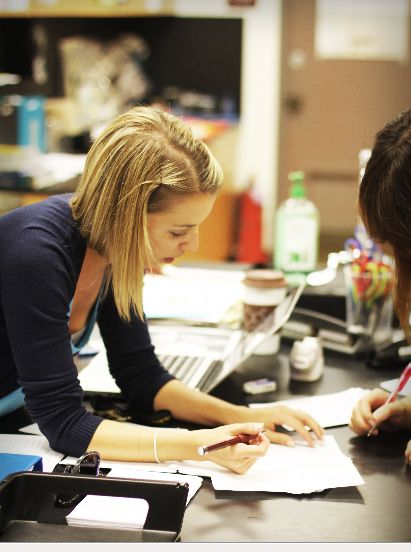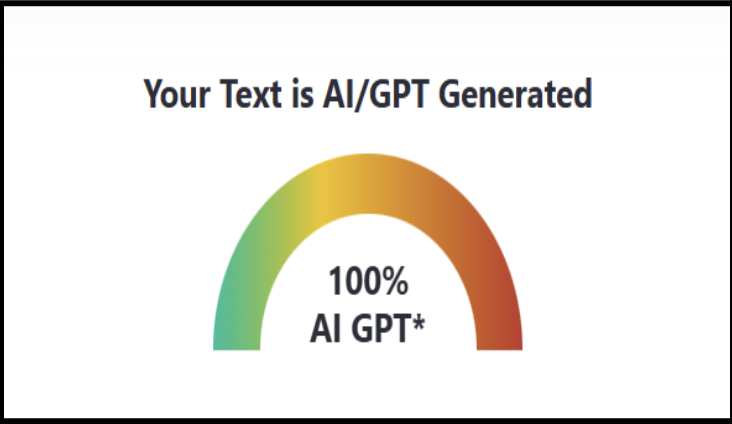The Los Angeles Unified School District has recently passed a bill that, instead of using a test to judge a teacher’s ability, will evaluate the overall performance and quality of a teacher throughout the school year. This new bill will positively affect both teachers and students as it will give teachers the opportunity to show their true skills in the classroom. It will also allow students to learn for the benefit of learning, rather than to simply pass a test. With less emphasis on the state test, teachers will be able to stop rushing through the course material and will be able to provide a better learning experience for all students.
The current  teacher evaluation is not an accurate representation of a teacher’s skill. If students do not take the time to study or have the initiative to review outside of class, they perform poorly, which ultimately reflects on the teacher. This is not only an unjust evaluation but also minimizes the quality of education students receive.
teacher evaluation is not an accurate representation of a teacher’s skill. If students do not take the time to study or have the initiative to review outside of class, they perform poorly, which ultimately reflects on the teacher. This is not only an unjust evaluation but also minimizes the quality of education students receive.
“The star test really is not that important to students, but rather to the school,” said junior Julian Rawlinson. “I feel as though most students know that the STAR test [does not] mean much [to them], and so they [do not] place emphasis on it, even if instructed to by teachers or administrators.”
The STAR test is always placed about one month before the end of the school year, forcing students to learn at a faster pace. There is less flexibility in the curriculum because teachers are pressured to accelerate the process of learning. For some students, keeping up with the rapid pace can lower their confidence in the subject and ultimately force them to stop trying. Because teachers are pressed for time, they must omit educational videos and collaborative group work, restricting students to power points and lectures. Some students greatly benefit from other activities, and if these educational tools are eliminated from the curriculum, students can be hindered from fully grasping the material. Furthermore, teachers have less time to elaborate and help individual students with questions.
“Group projects and enrichment are always an important part of the curriculum,” said Environmental Biology and Physiology teacher Megan Swanson. “This [new bill] will give teachers more time to spend on [group projects] and increase the amount of class time spent on hands-on activities.”
and Physiology teacher Megan Swanson. “This [new bill] will give teachers more time to spend on [group projects] and increase the amount of class time spent on hands-on activities.”
Numerous students feel that their class is structured around passing the state test, rather than gaining information on the particular subject. The emphasis on this test has been raised too high, forcing students to learn for the wrong reasons. Teachers provide information that is on the state test, rather than focusing on information that is valuable to the students and their futures.
“A strong teacher evaluation would include a measure of student engagement and participation, as well as student comprehension,” said Swanson. “Feedback from not only principals but other teachers, students and parents can also help provide a more comprehensive picture of a teacher’s success.”
This new bill will positively affect teachers and students alike. By allowing better evaluations for a teacher’s performance, students and teachers will feel less overwhelmed. Teachers will now have greater opportunities to use more creative educational tools in the classroom. This in turn will create a more successful and productive learning environment.








